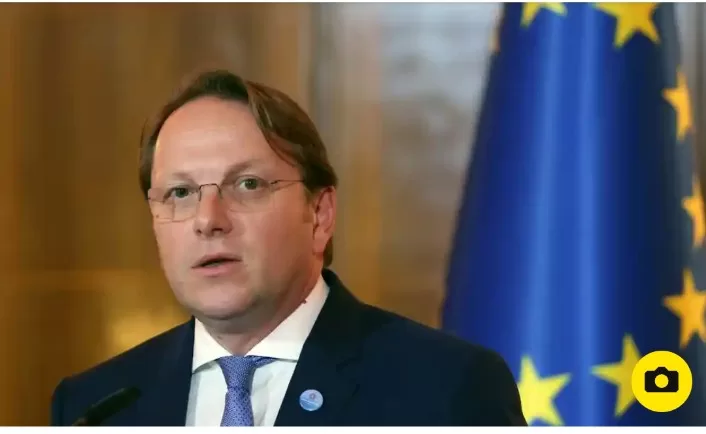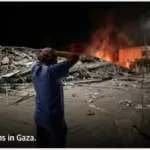In a stunning turn of events, the European Union (EU) found itself embroiled in a diplomatic dispute after an announcement by Olivér Várhelyi, the Commissioner for Neighborhood and Enlargement, indicating the suspension of “all payments” to Palestinians due to Hamas’s attacks on Israel. This declaration prompted strong reactions from several member states, including Ireland, Spain, and the Netherlands.
After a frantic six-hour period of scrambling for clarification, the European Commission appeared to backtrack on Várhelyi’s statement, asserting, “There will be no suspension of payments.” However, they added an element of ambiguity by stating that there were “no payments foreseen.”
Josep Borrell, the EU’s Chief Diplomat, who was attending a summit with Gulf states in Oman, firmly asserted that humanitarian aid to Palestinians would not be suspended. He emphasized that suspending payments would have harmed EU interests in the region and emboldened terrorists.
The controversy ignited when Várhelyi announced the immediate suspension of all payments and the review of all projects in a social media post. This announcement caught member states off guard, especially as it coincided with Gaza facing a stringent blockade by Israel.
Ireland and Luxembourg publicly questioned the validity of Várhelyi’s statement, causing significant embarrassment for EU officials who had earlier indicated that decisions on funding would be discussed at an emergency meeting of EU foreign ministers scheduled for the following day.
Madrid and Brussels also expressed reservations, with Belgium affirming its commitment to continue development and humanitarian aid. Spain’s Foreign Affairs Minister, José Manuel Albares, directly conveyed his disagreement with Várhelyi’s decision, seeking its inclusion on the agenda for the emergency foreign ministers’ meeting in Oman.
The Dutch Prime Minister, Mark Rutte, clarified that there were no plans to suspend humanitarian funds from the Netherlands. He emphasized the importance of distinguishing between Hamas, the terrorist organization, and innocent Palestinians who have suffered under its regime.
As hours passed with no clarification, another EU commissioner, Janez Lenarčič, had to reassure critics that humanitarian aid to Palestinians would persist despite the energy and food blockade imposed by Israel.
Finally, after six hours of uncertainty, the EU issued a statement confirming an urgent review of its assistance to Palestine. The objective of this review was stated as ensuring that EU funding does not indirectly support any terrorist organization targeting Israel. The statement seemed to backtrack on Várhelyi’s claim of frozen funds but also noted that, in the meantime, “there were no payments foreseen,” without specifying which payments were under discussion.
Ireland, highlighting that 80% of Palestinians depended on international assistance to survive, pointed out that €700 million in humanitarian aid had been provided to Palestinians in Gaza and the West Bank since 2000 through EU sources.
The EU emphasized that ECHO funding, a crucial humanitarian aid channel, would not be subjected to review. Várhelyi’s earlier statements had sown confusion, as he had previously indicated that funding decisions would be made during the foreign ministers’ meeting in Oman.
The United Kingdom also announced its intention to review funding to ensure that no money inadvertently supports terrorist activities.
This development has underscored the complexity and sensitivity of the EU’s involvement in the Palestinian-Israeli conflict, with humanitarian aid at the center of a heated diplomatic standoff.







